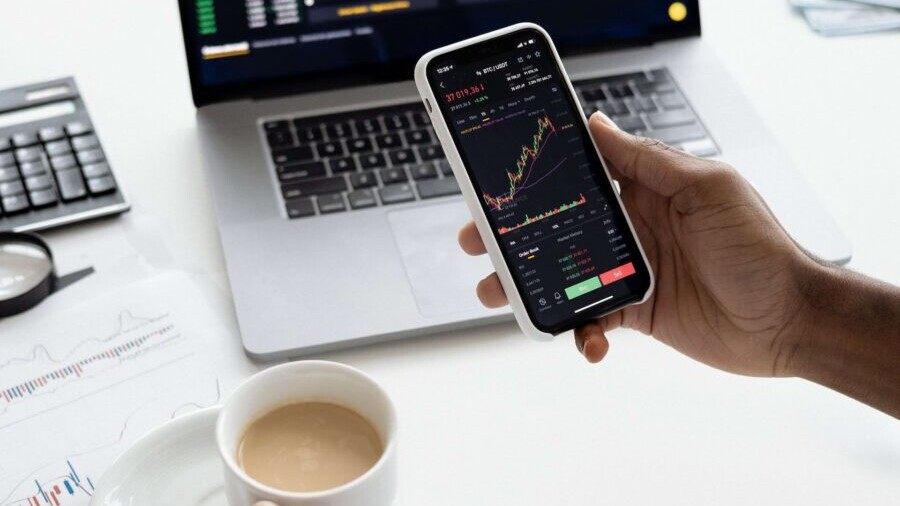Insider trading refers to individuals buying or selling securities, such as stocks or bonds, due to having access to non-public information, which gives them an advantage over others. This information refers to any type of decision or announcement that is expected to affect the performance of the business’s securities. For example, someone may buy shares before an announcement is made because they expect the share price to drop. This is an unethical practice that can have financial penalties as well as imprisonment for the individuals engaging in the practice. Individuals and/or corporations can be found guilty of insider trading.
When is something insider trading?
The reason insider trading is illegal is that other investors in the market are at a disadvantage. They may lose money not only due to the announcement or decision made by the company but also due to the number of securities that were sold. However, in some scenarios, insider trading is legal.
If an employee sold or bought securities close to the timing of a decision, but didn’t know that decision was going to be made, then that does not count as insider trading. The employee trading securities was coincidental and they didn’t have insider information. Another example could be that an employee is in a pre-arranged plan. In some countries, insider trading may be legal under certain circumstances, such as filling a form containing the details of the trade.
Consequences and cases of insider trading
Insider trading is not easy to identify and prosecute. That is why individuals are tempted to trade in a way that they will not get caught. Some individuals may share the information with friends and family.
In 2001, the Food and Drug Administration (FDA) in the United States announced that a cancer drug that was expected by the public to get approved, was rejected. The drug was called Erbitux and it was developed by ImClone. The share price of the company dropped but surprisingly, friends and family of Samuel Waksal, the CEO, did not experience any losses. It was later found that many executives had sold their shares way before the public announcement was made. One day before the announcement, Waksla’s client, Martha Stewart sold 3,928 shares of ImClone worth $230,000.
In this case, insider trading creates an unfair market as Samuel Waksal had insider information that he shared not only with his friends and family, but with his client as well. When $230,000 worth of shares are removed, the share price tends to drop, and since the announcement was made the next day, the share price dropped rapidly. In 2004, Stewart was charged with obstruction of a proceeding, conspiracy, and making false statements to federal investigators. Even though she was not charged with insider trading, she had to pay $195,000 to settle a civil case with the Securities and Exchange Commission.

Other consequences
While the directors of ImClone avoided jail, it is a possible consequence, which in Australia can reach up to 10 years. Fines for individual insider trading in Australia are up to $450,000, making it a serious crime for anyone who attempts it. If an organisation is found to engage in insider trading, the amount is more than double, reaching up to a million.
Businesses who are caught in insider trading scandals also ruin their reputation. Consumers value ethical companies and taking advantage of non-public information is not seen favourably. Even if one employee is suspected, the company may suffer. Businesses should take steps to ensure that their employees are keeping confidential information to themselves.
Moreover, insider trading is not only expensive because of the fines, but also the legal fees associated with court proceedings and getting legal counsel.
Can you prevent insider trading?
As an employer who wants to uphold ethical practices, there are a few things you can do:
- Educate employees
- Be mindful of what is shared during meetings
- Blackout period
- Hire the right people
Educate employees
Some employees may not realise that insider trading is illegal. While this won’t make a good defence in court, letting employees know what insider trading looks like and educating them about the consequences can help avoid a scandal.
Be mindful of what is shared during meetings
Not all teams need to be informed about changes. Some details may need to be kept confidential until they go public. Senior staff should decide what information can be shared with everyone in the company and what information is better for only a few people to know about. Even when talking on the phone inside the company, it is wise to be mindful of what is being discussed.
Blackout period
Another effective way to prevent insider trading is to not allow employees to trade company stock for a period of time. Companies usually enforce blackout periods before a big business decision or when company earnings are released. This ensures that the public does not assume any move was taken with prior knowledge and the employees are trading on the same level as every other investor.
Hire the right people
This is easier said than done. Hiring the right individuals requires a lot of time and many background checks, especially for a high-level position that will be involved in executive decisions. While it may be time-consuming, it can benefit the company in the long run as the business may avoid being involved in an insider trading case. To improve the hiring process, it is advisable to create a policy on insider trading.
Are you looking to investigate insider trading?
At Polonious, we help investigators with different types of fraud and financial crimes. We assist them in cutting down investigation time and setting up automated updates so nothing is missed. We also provide investigators with a safe place to store evidence such as images, videos, documents and more, while the investigation is underway. While all information can be accessed in one place, only those involved in the case can have access to it. Do you want to learn more? Reach out and book a demo!
Let's Get Started
Interested in learning more about how Polonious can help?
Get a free consultation or demo with one of our experts
Eleftheria Papadopoulou
Eleftheria has completed a Bachelor's of Business with a major in Marketing at the University of Technology Sydney. As part of her undergraduate studies she also obtained a Diploma in Languages with a major in Japanese. Following her graduation she has been working as a Marketing Coordinator and Content and Social Media Specialist.
Eleftheria is currently finishing her Master in Digital Marketing.




